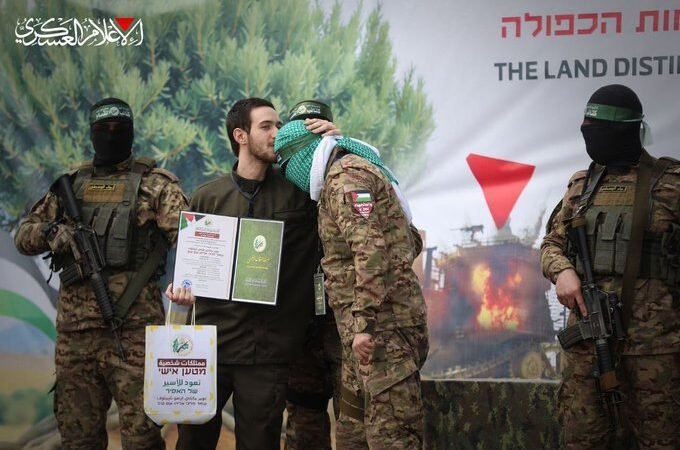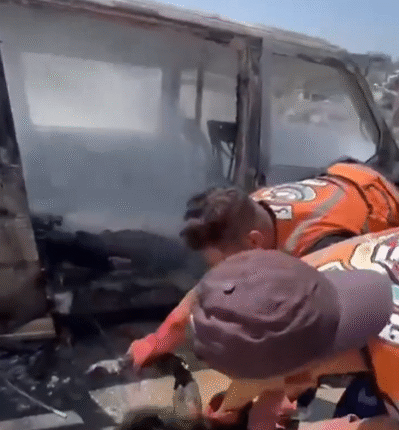In a sudden escalation of the conflict, Israel announced an end to its ceasefire with Hamas and has ceased all humanitarian aid into Gaza. The recent move has prompted international outrage, raising concerns of new violence in the conflict-ridden region. The government of Israel, under Prime Minister Benjamin Netanyahu, maintains that the step is meant to put pressure on Hamas to accept the terms of a new ceasefire agreement. Opponents, however, claim that withholding aid amounts to collective punishment and worsens the already dire humanitarian situation in Gaza.
The truce, which was brief, was as part of a deal where there was a swap of hostages and additional humanitarian aid to Gaza. The deal was brokered through international intervention, including the United States, Qatar, and Egypt, as a means of bringing an end to further escalation. However, when there were delays in negotiations for a second phase of the deal, Israel unilaterally declared the suspension of all humanitarian aid into the Gaza blockade.
This step, in the view of the Israeli government, is to put pressure on Hamas to accept conditions for an extended ceasefire. Israeli leaders have complained that Hamas is using the ceasefire to replenish its weapons and rebuild its forces. Netanyahu stated that unless Hamas gives guarantees on security and the release of all the remaining Israeli hostages, there is no justification for providing aid.
The blockade of humanitarian aid has already worsened the situation in Gaza, which was short of food, water, and medicine. The United Nations and relief agencies condemned the move by Israel, which they said would have catastrophic consequences for civilians.
Philippe Lazzarini, head of the UN Relief and Works Agency (UNRWA), described the situation as “unbearable” and called on Israel to cancel its decision immediately. “The people of Gaza are on the brink of famine, and withholding aid from them will only worsen their suffering,” he added.
With hospitals operating on skeleton staff and thousands of Palestinians from the territories staying in emergency shelters, humanitarian groups are in fear of a final collapse in services. The cries for intervention on the international stage have also intensified, and pressure to get Israel to reinstate access to humanitarian aid is increasing.
The move has been criticized vehemently by the international community. The U.N., the European Union, and other international leaders have appealed to Israel to reconsider its move. The U.S. State Department did express “serious concern” over the action, but stopped short of demanding any diplomatic response.
In turn, Hamas blamed Israel for a breach of international law and called on its allies to retaliate. “This is an overt act of aggression against the Palestinian people,” said a Hamas spokesperson. “We hold Israel completely responsible for the outcome of this blockade.”
Adding to the uncertainty, Netanyahu has signaled an eagerness to escalate military actions. While no all-out war has followed as yet, the media reports that Israel has mobilized 400,000 reservists in case the situation turns further for the worse. Speculation is also growing about future Israeli military strikes against targets outside Gaza, with some officials foretelling strikes on Damascus or direct clashes with Iran.
Iran retaliated against these threats by warning any Israeli aggression that any attack on its allies or even on its soil would be met with a “devastating” attack. Syrian authorities have also strengthened their military defenses, concerned about a spillover war in the region.
The dynamics keep changing, with diplomatic efforts still ongoing in the bid to salvage an eventual ceasefire. Egypt, Qatar, and United Nations brokers are reportedly busy urgently negotiating Israel and Hamas in last-minute talks that seek to forestall further escalation. That both Israel is heading hardline and Hamas is refusing to budge has however created little optimism of quick conclusion.
As tensions mount, Gaza’s civilians remain the most affected by the conflict. The world now awaits to know if international pressure can drive Israel to restore humanitarian assistance and prevent another large-scale war in the area.
For now, the crisis deepens and hope for lasting peace appears more elusive than ever.
Israel Ends Ceasefire, Blocks Humanitarian Aid to Gaza, Escalating Tensions in the Region



